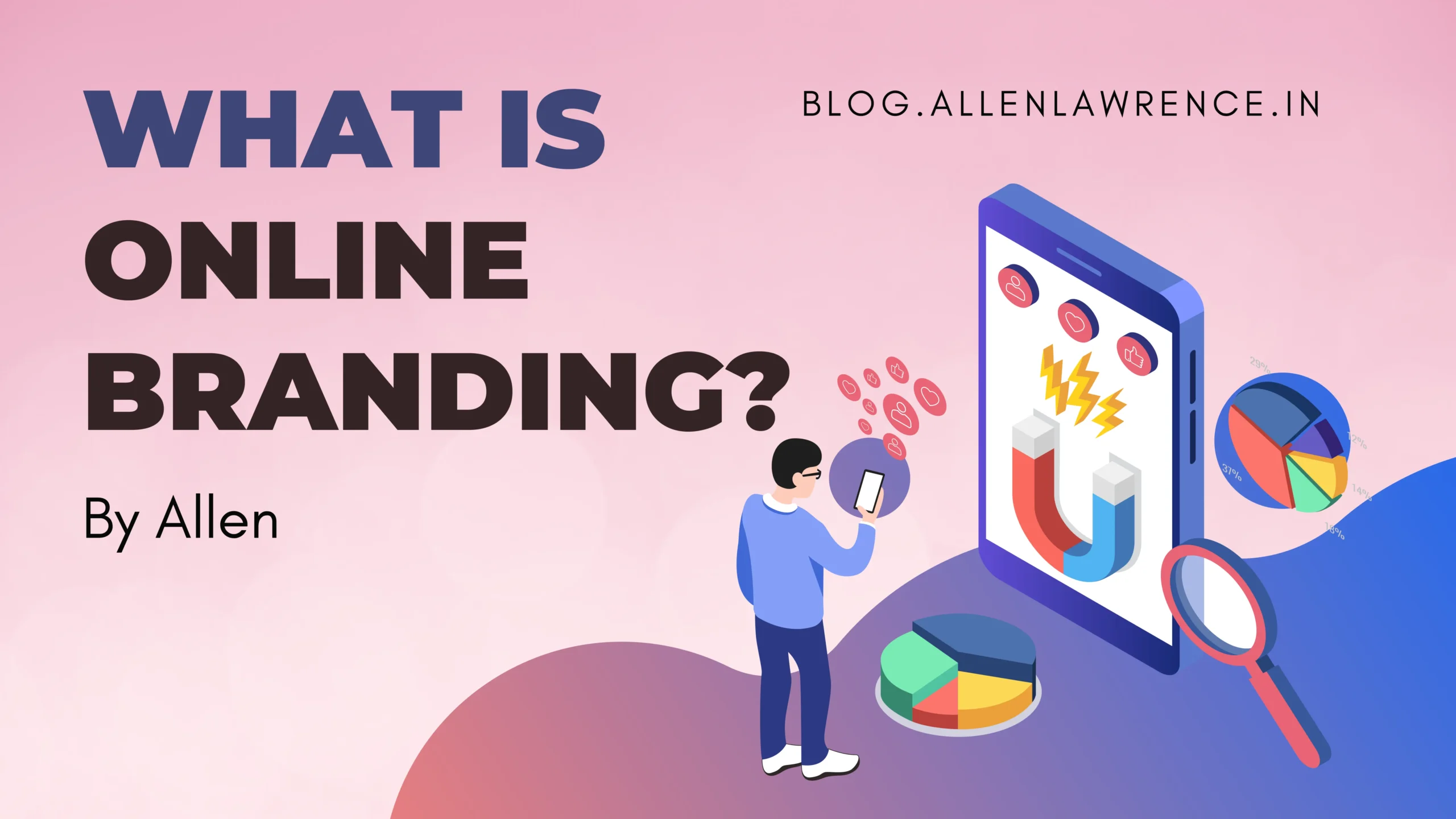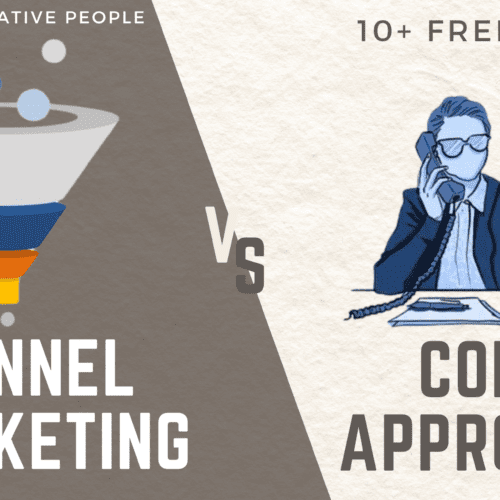What Is Online Branding?
The process of branding your online business via the likes of a website, search engines, social media platforms, blogs, and other forms of online advertising is known as "online branding." It's a way to get your company's name and products or services in front of more people online.
Optimizing your online presence is essential if you own a business or online store and want to generate more leads, convert them into customers, and ultimately sell more of your brand. Raising the profile of a company online is crucial to its success in drawing new customers and retaining existing ones. So, let's launch a brand on the web and get started!
The Definition of Online Branding.
To put it simply, online branding is a method of brand management that employs the usage of the Internet to establish a strong presence for a company in specific markets. It's also known as online marketing or branding on the web.
It's also possible to view it as a digitally-focused strategy for growing customer awareness and sales. Internet marketing channels have emerged as a means of increasing a brand's online presence as the online platform has developed. It expands companies through using search or social media.
Why Is Online Branding Important?
The Internet can increase profits regardless of a company's area of expertise. Most businesses today have decided to build their brands online. The following are some of the most critical applications of online branding campaigns:
- Telling Your Brand's Story
- Figure out who you want to sell to – Your Target Audience
- Increasing Product Notoriety – Engagement & Popularity
- Constructing a two-way conversation with prospective listeners, clients
- Developing and disseminating the brand's unique selling proposition
- Increasing exposure, generating more leads, and propelling sales.
The R.A.C.E Model
The R.A.C.E Framework is a four-step process for building a successful online brand and connecting with prospective customers. The RACE model of online branding consists of four phases:
R - Reach
A- Act
C - Convert
E- Engage
It aids in the formulation of strategies, the administration of operations, and the improvement of online advertising.
Online Branding Strategy: Critical Elements
The Internet's primary focus should be on the client while developing a brand identity while branding your business online. Understanding your target audience's preferences, demographics, and behaviour is essential to crafting a winning branding approach.
The characteristics that define a brand's personality are closely linked to the branding process. Therefore, the brand's visual features, such as the logo and slogan, are vital in conveying the brand's message to the intended consumers. Curiosity, interest, affinity, and relationships with potential customers are fostered as a result.
Competitors: Analyzing the competition is crucial to developing a winning online brand strategy. It provides direction on the appropriate channels, techniques, and practices and recommends more effective ways to stand out from the crowd.
Online Messages: In online marketing, the way a company communicates with its target audience is crucial. Brand messaging must reinforce the company's mission, offerings, and value to consumers.
Branding strategies depend on a variety of elements. Still, one of the most important is the location of the business' headquarters and the analysis of the demographics of the area, including the languages spoken and other region-specific information.
The success of a brand depends on its people, or employees, and how well they grasp and fulfil the brand's promises. As a result, businesses need to make sure they are providing adequate education, training, monitoring, and recruitment for their staff.
The nature of the goods or services a company offers is also crucial to the success of its branding efforts. Improving a product's online reputation depends critically on demonstrating how it improves the customers' lives.
Online Branding in Digital Marketing: 7 Easy Steps
Brands can use stealth to their advantage by making themselves known to their target demographics.
It gets tough to stay ahead of the competition when everyone is making an effort to make their mark online in a results-oriented way. Blogs may be the most effective platform for establishing credibility, but social networks are helpful in reaching out to the audience.
Listed below are a few suggestions for improving the online reputation of any company:
1. Distinctive blog layout
Targeting your audience effectively is essential to get your internet business noticed. A well-written blog that is both relevant to the niche and offers solutions to the audience may do wonders for bringing attention to any business.
The blog's visual design is just as important as its content in setting it apart from the competition. The blog's graphic design must be engaging enough to keep readers engaged with the site for as long as possible. The blogs' capacity to do so would provide them more visibility.
There is no need for the blog to try too hard to impress readers and stray from the brand's ideals. Any brand's logo must be harmonious with the texts and colours associated with the brand. A brand only needs a simple logo to achieve the desired effect. As a result, the brand and its values become more memorable to consumers.
2. Make a catchy slogan
Once completed, the logo has the desired effect, but adding a catchy slogan may take things to the next level. The use of these phrases can aid in conveying the intended brand message to the intended audience.
Instead of coming up with a convoluted tagline, keep it straightforward. The goal is for the target audience to quickly get the brands' intended meanings from the copy.
3. Produce an "About Me" page.
If readers are impressed after visiting the blog, they will learn more about the company. If you want your audience to really understand your brand, spend some time on the "about us" page. Brands can use this area to promote themselves in an effort to turn potential customers into paying clients.
Rather than focusing on selling the benefits of the brand, this venue should serve as a forum for audience participation. It's a give-and-take situation, but the businesses need to explain why theirs is the best option for customers.
The brands need to get at least one action from these visitors, such as an email subscription. In the future, the brands can immediately begin email marketing to these individuals.
4. Embedding Social Media
Making a consistent online presence across all channels is crucial to online branding. These companies' ideal customers may have stumbled across them using search engines rather than social media. Therefore, the company should make it possible for these clients to contact them via social media.
To that end, it's important to include references to the various social media handles where the respective firms can be found. Brands should include links to these accounts in the event that customers have questions or need to contact the company.
5. Put up videos on the Internet
To gain authority, trust, and attention, nothing beats videos. Successful creators & brands include videos regularly on their blog posts, whether it's Chris Ducker or Neil Patel.
Blogs can be utilized as a stepping stone to winning over readers' affections, while videos can be used to keep their attention and ultimately turn them into loyal consumers. The blogs may feature embedded videos from YouTube or another social media site. In the long run, this will also help expand the companies' audiences on channels like YouTube and social media.
6. Incorporating Persuasive Material Into Your Content
Only if the information is appealing and persuasive to the audience will they be able to reap all of its benefits. Therefore, it is essential that the audience carefully expresses the significance of the blog and that it appears evident to them before opting for the audience.
The brands' responsibility is to aid the audience in solving their problems. As a result, consumers will have a more favourable impression of the company and its offerings.
7. Giveaways/Gifts/Freebies
Brands should choose to provide their early customers with minimal freebies. Companies, however, should assess their financial resources before selecting which benefits they can offer the public.
Online Brand Promotion Do's and Don'ts
Techniques for Promoting a Brand
There are a plethora of advantages that businesses can reap from engaging in online branding, particularly if they are executed precisely. Therefore, brands should minimize the impact of a few branding drawbacks. Some of the potential repercussions of poor online brand management include the following:
- Stay away from astronomical prices: The branding process can have a few unintended consequences if proper preparations are done beforehand. One major negative of branding is the high cost associated with it. Brands do not become well-known overnight, so businesses must invest much in marketing and promotion.
- Make sure your actions won't give the brand a bad name. If your brand has a bad reputation for any reason, regaining your former success will be incredibly challenging, if not impossible.
- Refrain from restricting or overstretching the brand: One of the drawbacks of branding is that it can cause a company to lose some of its adaptability. It is because customers often associate a brand with a single product, and it's only sometimes a safe bet that a different outcome will do as well in the market if the company decides to sell it under the same brand.
NOTE: Regular advertising is necessary to establish a brand's favourable reputation in consumers' perceptions. So, companies need to promote their brands in different & efficient ways. When promoting a business online, it's crucial to have a solid game plan in place to take advantage of the many opportunities for free advertising.
As a result, businesses need to be wary about the methods they use to attract customers. In such cases, brands must keep tabs on the shifting wants and demands of their clientele and the current trends in the marketplace. This way, they can adapt to changing tastes and test out potentially successful innovations.
Advantages of a Strong Online Branding Campaign
There are tremendous advantages to internet branding, which is why everyone is adopting it. The following are some benefits of internet branding that should help companies decide in favour of it.
Brands can now have a global presence thanks to Internet's global reach. Occasionally, a brand's intended consumers may reside in a country other than their own. However, these limitations do not apply to online firms.
Instil Confidence:
After the epidemic, the Internet has become a platform for reaching every demographic. Moreover, digital audience reach is facilitated by online branding thanks to the widespread exposure it offers. Brands can win customers over with the content and reputation they build online.
Internet branding delivers better brand exposure, which in turn makes ensuring quicker results a simple process. People are more likely to choose a brand's services or products if they positively associate with the brand.
It saves brand owners time and money when compared to other methods of audience engagement. It turns out that traditional offline audience engagement techniques are expensive and time-consuming. This process has been simplified greatly by the advent of the Internet.
Conclusion
Every company may benefit from strategic online branding if it's done right. Once marketers have figured out whom they're trying to reach, it's time to start making sales pitches using internet branding's many tools and methods.
The benefits of internet branding will eventually trickle down to businesses, but firms need to be patient while they do so. Successful online branding is possible with the application of the best digital marketing tactics. It can be used to improve a company's brand recognition and sales in the digital realm.




